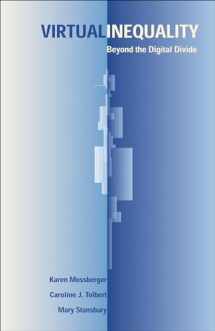
Virtual Inequality: Beyond the Digital Divide (American Government and Public Policy)
Book details
Summary
Description
That there is a "digital divide"―which falls between those who have and can afford the latest in technological tools and those who have neither in our society―is indisputable. Virtual Inequality redefines the issue as it explores the cascades of that divide, which involve access, skill, political participation, as well as the obvious economics. Computer and Internet access are insufficient without the skill to use the technology, and economic opportunity and political participation provide primary justification for realizing that this inequality is a public problem and not simply a matter of private misfortune.
Defying those who say the divide is growing smaller, this volume, based on a unique national survey that includes data from over 1800 respondents in low-income communities, shows otherwise. In addition to demonstrating why disparities persist in such areas as technological abilities, the survey also shows that the digitally disadvantaged often share many of the same beliefs as their more privileged counterparts. African-Americans, for instance, are even more positive in their attitudes toward technology than whites are in many respects, contrary to conventional wisdom. The rigorous research on which the conclusions are based is presented accessibly and in an easy-to-follow manner.
Not content with analysis alone, nor the untangling of the complexities of policymaking, Virtual Inequality views the digital divide compassionately in its human dimensions and recommends a set of practical and common-sense policy strategies. Inequality, even in a virtual form this book reminds us, is unacceptable and a situation that society is compelled to address.


We would LOVE it if you could help us and other readers by reviewing the book
Book review



